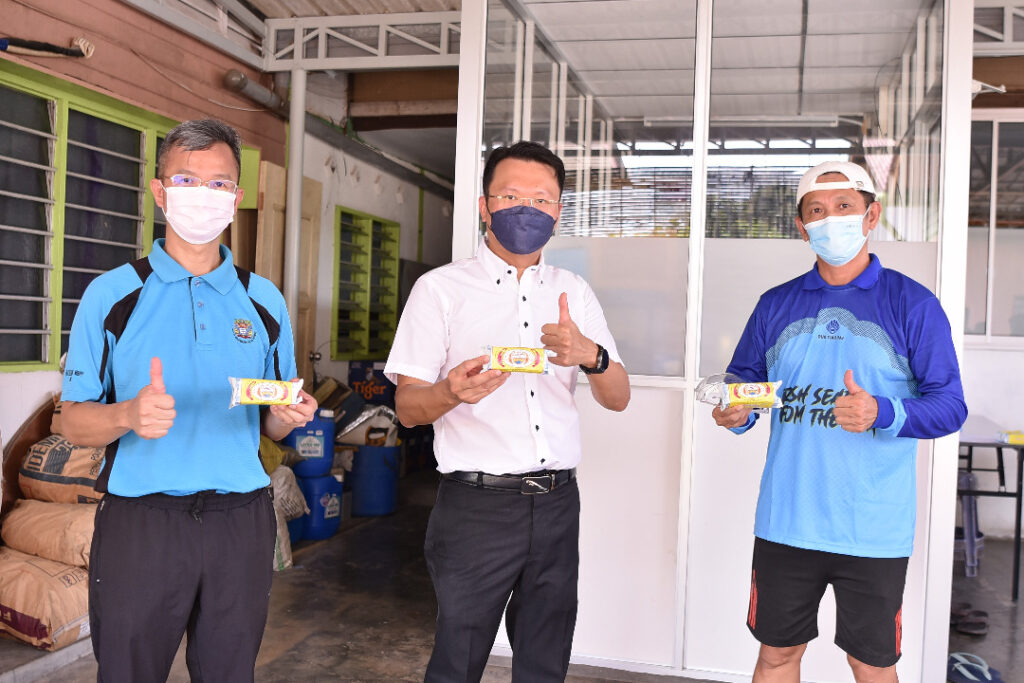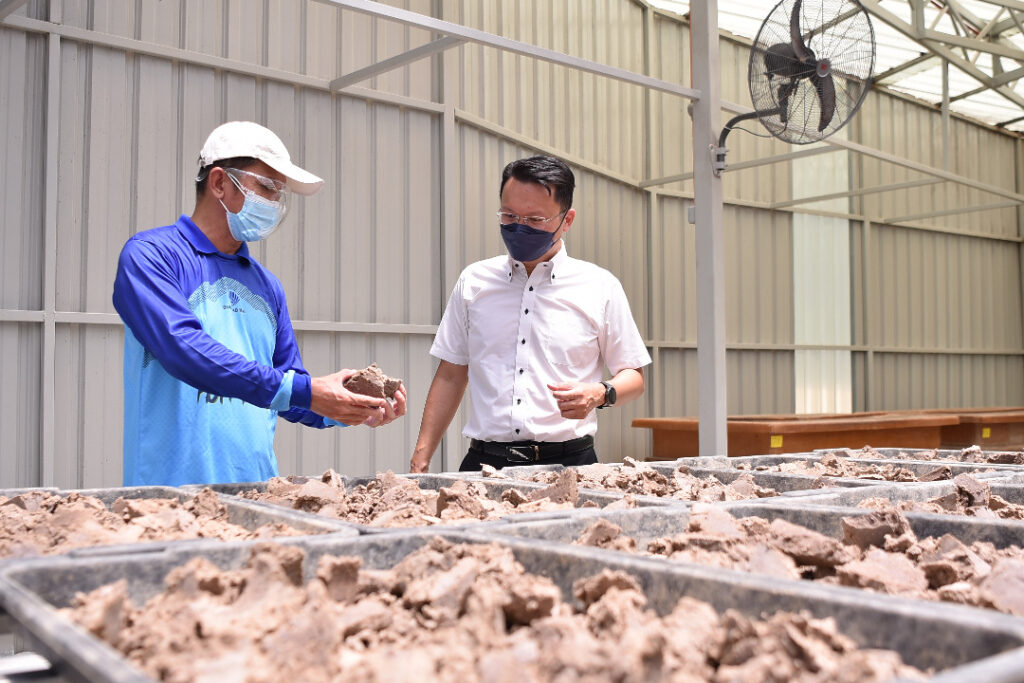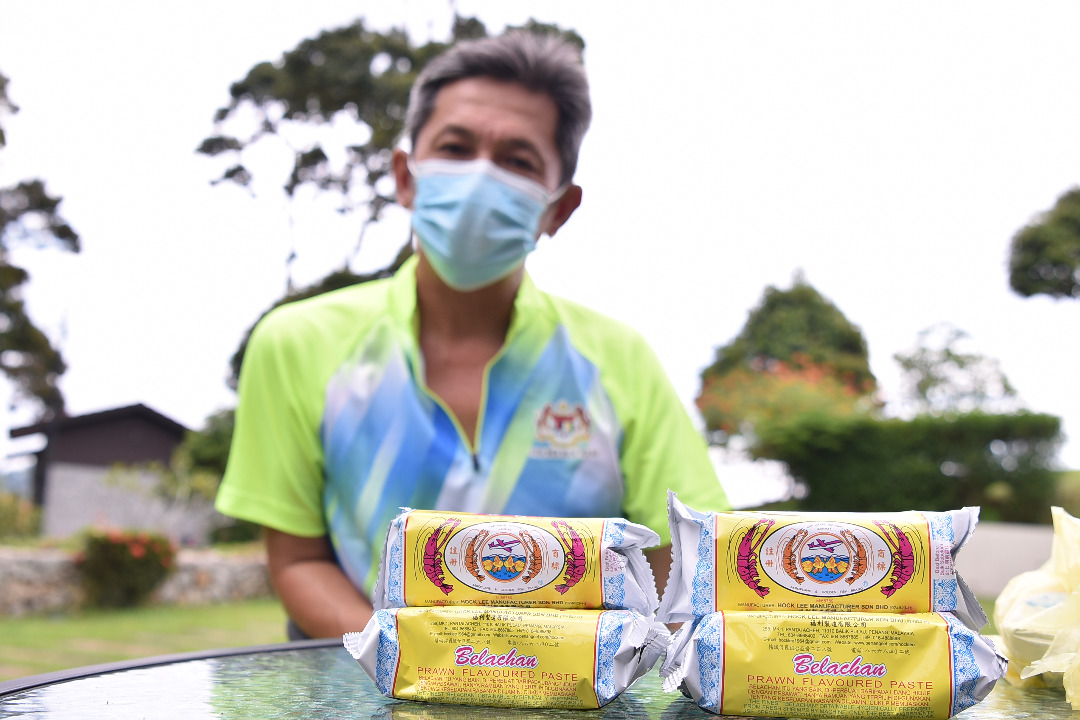
(Pictures courtesy of Buletin Mutiara)
The “Made In Penang” brand is going places.
One such product is the locally made belacan brand under the name “Aeroplane & Golden Fish Brand”.
The product was founded in 1964 and is now being exported to countries like Hong Kong, China and Macau.
“International markets sing high praises for the half a century old family belachan business that is proudly made in Penang.
“With a history of 57 years, they are the sole prawn paste exporter in Penang.
“Ever since Mr Toh Tat Soon superseded this family business, he had integrated new belachan-making methods which resulted in the use of machines in its production.
“These fragrant belachan which adhere to the stringent regulations outlined by the Ministry of Health.
“Long-time family businesses should consider assimilating elements of tourism and manufacturing under one umbrella to open up new streams of income, especially in the post-pandemic era where innovation is crucial for business sustainability,” he said after visiting the factory with his entourage,” Penang State Exco for Tourism and Creative Economy, Yeoh Soon Hin on his visit to the factory in Balik Pulau.

Yeoh envisaged that “Made in Penang” will be a trend to position the state in the international arena, in which transformation of traditional family businesses into tourism factories will encourage new synergy and economic effect, propelling our footsteps in industrial tourism that is currently gaining global traction.
He also outlined that a robust “Made in Penang” brand is an important catalyst to spur Penang’s tourism economy by catapulting our exposure and popularity in international market segments, achieving the vision to promote the state’s tourism via local products.
“A properly-established Made in Penang brand will appeal to our unique cultural heritage offerings to foreigners and attract them to select Penang as their next travel destination,” he added.
In the meantime, Yeoh also encouraged traditional business in Penang to pursue and explore industrial tourism by curating experiential workshops to diversify its business and tap into tourism elements, to yield an additional source of revenue via industrial tourism.


